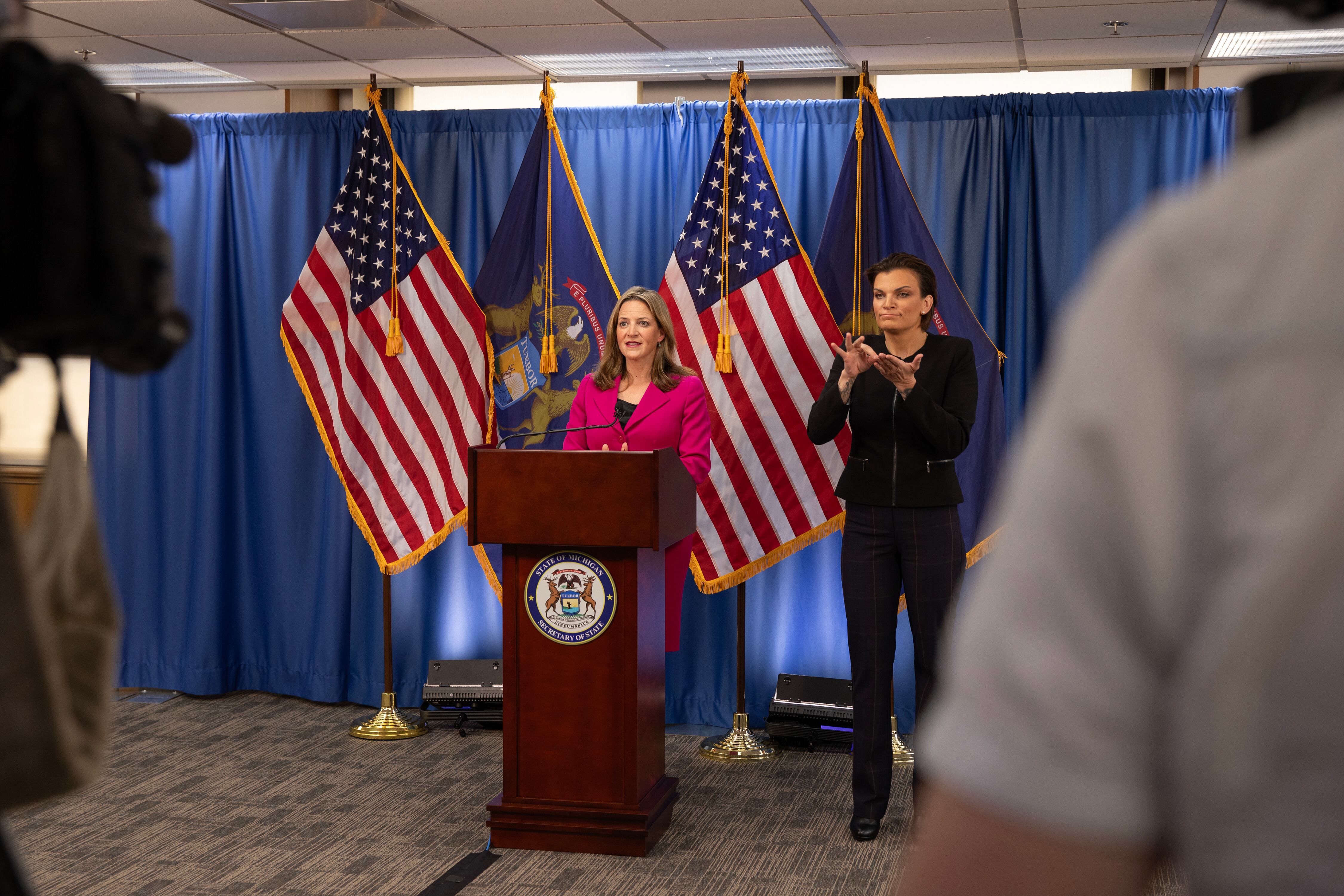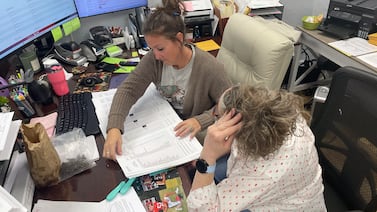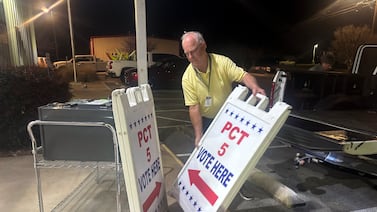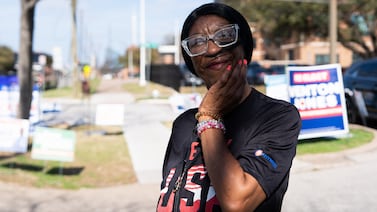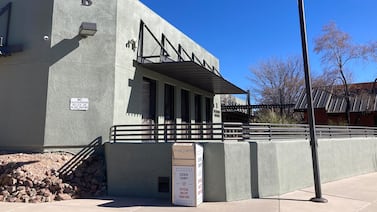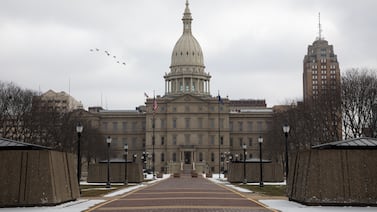Votebeat is a nonprofit news organization reporting on voting access and election administration across the U.S. Sign up for Votebeat Michigan’s free newsletter here.
An overloaded server briefly brought Michigan’s voter check-in system to a crawl Saturday morning, a hiccup on the first day of early in-person voting in the state primary that Secretary of State Jocelyn Benson says she is “confident” won’t happen again.
The error was the result of other applications running on the same server that also hosted the state’s early voting electronic poll books, Benson said during a news conference Monday. When voting started, those hundreds of poll book connections plus those other applications “caused a spike in activity” that tied up the servers and forced clerks around the state to temporarily switch to paper voter records.
The Secretary of State’s Office worked with the Department of Technology, Management and Budget to discuss a solution that prioritizes early voting over other applications and protects access to the servers, Benson said.
“We’ve made clear that was something that shouldn’t happen again, and it won’t,” Benson said.
She added that it was “pretty cool” to see clerks respond immediately to use backup plans to ensure voters were still able to vote. The state can’t get rid of every single potential problem, but addressing them immediately is valuable, she said.
The electronic poll books are a crucial piece of election equipment for the state’s offering of early in-person voting, which Michigan approved in 2022 and adopted statewide this year. Poll workers at early-voting sites use the electronic poll books to connect to a statewide electronic list of voters to check voters in and confirm that they haven’t already cast a ballot in the election.
Local clerks told Votebeat that while the problem didn’t stop voters from casting a ballot, it did require some workaround as election officials turned to paper voter rolls as a backup.
Clerks across the state said they were extensively trained to make sure they’re able to address problems. Anything can go wrong with technology, Arenac County Clerk Nancy Selle told Votebeat on Monday, but her team was prepared.
“We had our printed list of voters, and we did ballot on demand for those who came in,” Selle said, referring to the process of using a special printer to issue each voter the correct ballot for where they live. “We had our backups, and they were able to vote without a problem.”
When the server errors were fixed and the poll books could once again connect, elections staff were able to update the electronic records of voters who had come through.
Clerks reported very few voters were actually affected by the problem. Across the state, about 6,400 people voted on Saturday, Benson said. In Arenac, a county of about 15,000 people situated on Saginaw Bay, only about 20 voters came through the entire day. Early voting continues through Sunday, Aug. 4.
Washtenaw County Clerk Lawrence Kestenbaum said that turnout was relatively small for his county’s voting sites as well, despite Washtenaw often being a “county of early adopters” for options such as early voting.
It would have been more of a problem had the server issue come at a busier time, he told Votebeat. He apologized to any voters who had to wait but said the problem was more at the level of annoyance than severe inconvenience.
His concern was that Washtenaw didn’t hear from the state about the problem immediately.
“We weren’t sure what was causing it,” Kestenbaum said. “It would have been easier if we knew from the start that, oh, it would have been down for an estimated time.”
Cheri Hardmon, spokesperson for the Department of State, said Monday that the bureau of elections “provided multiple communications” while the problem was ongoing, including an email to clerks and election directors. The state also worked to respond to calls and emails quickly, she said.
In Arenac County, a potentially bigger problem Selle noted was that at one point, a ballot got stuck in the tabulator, but that too got resolved promptly.
“We’re extremely prepared for everything,” she said of clerks around the state.
David Becker, executive director and founder of the Center for Election Innovation and Research who joined Benson at Monday’s news conference, said that generally, the electronic books make it easier for the jurisdictions to have multiple voting centers that voters can choose from, as many cities and counties do during early voting.
Using electronic poll books also keeps people from voting multiple times, he said.
“It’s good for the voters. It’s good for election officials. It’s good for integrity,” Becker said.
Benson said that she was confident from the development to the implementation of electronic poll books that they help make the process more accurate and secure.
“One of the assets of early voting,” Benson said, “is that it enables us to catch something like that on a Saturday when you still have 8½, 8¾ days of early voting, to fix it and make sure it won’t happen again.”
Hayley Harding is a reporter for Votebeat based in Michigan. Contact Hayley at hharding@votebeat.org.

